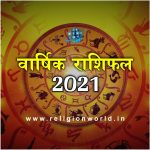Eid Moon has been sighted and the long siren has been given in the mosques and Muslims across the world are preparing to end the long fasting month of Ramadan, the ninth month of the Islamic calendar. Eid al-Fitr, which means “festival of breaking the fast,” falls on different dates in different countries depending on the moon sighting.
This year, Eid al-Fitr will be on June 5 in India. Some Muslims wait to see the moon themselves before marking Eid al-Fitr, while others use the calculated time of the new moon, or base it on the declaration made in Saudi Arabia or Turkey. Every year, the date of Eid changes as the Muslim calendar is based on the phases of the moon.
The Eid date remains a suspense till the last night as it completely depends on the sighting of the moon. If the moon is sighted in any part of India, Eid ul-Fitr is celebrated the next day. There are some sects that follow strict rules to establish that the moon has been sighted and rely on testimonies rather than scientific methods. After people break their fast, all eyes will be set on the sky to spot the moon. The crescent moon appears only for few minutes and if you miss the chance to spot it then you have to rely on sources. The method of moon sighting goes back to the time of the Prophet Muhammad. But the ritual of determining the dates of holidays differs among mosques and countries. If no reliable moon sightings were reported, the month of fasting would have lasted one more day.
How is Eid celebrated
Countries like India, Pakistan and Bangladesh started observing fast either on 5 June while the Saudi has already stared its Eid celebrations. People wake up early chant Salat ul-Fajr, followed by a breakfast before heading off to pray at a mosque or a prayer venue to perform special congregational prayers known as Salat al-Eid, consisting of two rakats. On their way to the prayer venue, Muslims also recite ‘takbir’. After Eid prayers, families visit graveyards and pray for the salvation of departed family members. Traditionally, the celebrations begin at the first sighting of the crescent moon. If the moon is not sighted on the 29th day of the previous lunar month then Eid is celebrated on the following day. Fasting on the day of Eid is forbidden. The night before Eid is called ‘Chaand Raat’ which literally means ‘Night of the Moon’. There is a tradition to distribute money among the poor. Eidi, gifts on Eid, are given to the children and immediate relatives. People also share Eid special meals and sweets with their friends and neighbours.
In India, places, where Muslims in thousands perform Eid prayers, are Jama Masjid in Delhi, Mecca Masjid in Hyderabad, Aishbagh Idgah in Lucknow, Red Road and Nakhoda Masjid in Kolkata, Taj-ul-Masjid in Bhopal, Jama Mosque in Mumbai, Hazratbal Mosque in Kashmir.









